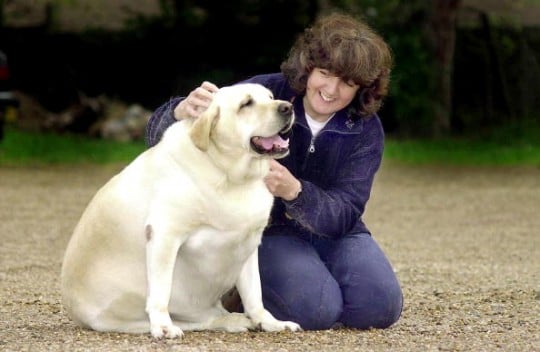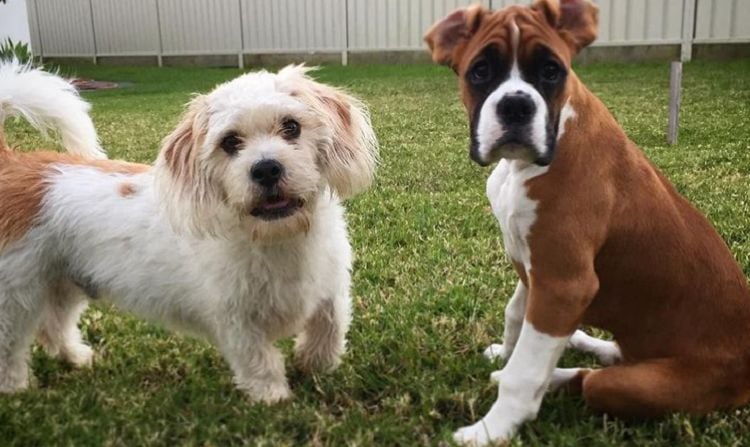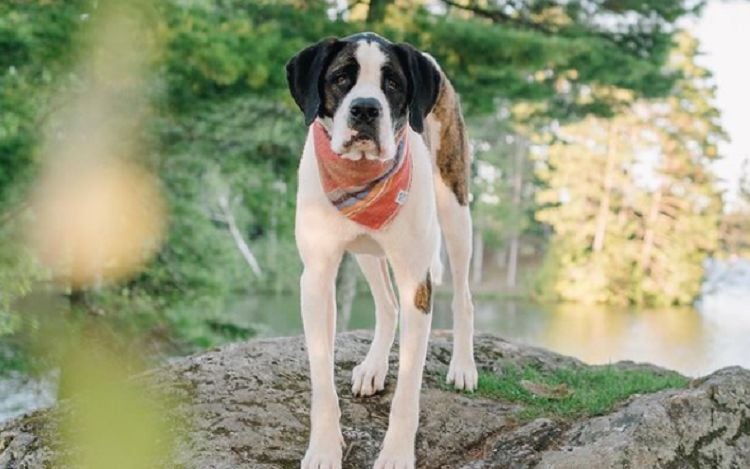Ten Dog Breeds that are Most Prone to Obesity
Our society has a problem on its hands right now, and no one wants to talk about it. Dog obesity. The problem is that people see overweight dogs as cute, and tend to react positively to them, blissfully unaware that being an obese dog means that the dog is more prone to have serious health problems down the road like diabetes or heart disease. Obese dogs aren’t so funny now, are they? But are there certain breeds that are more likely to become larger than others? Yes. Here are ten dog breeds that are most prone to obesity. In other words, you have any of these breeds, quit sneaking them snacks.
(Photo by Mike Thomas/Express Newspapers/Getty Images)
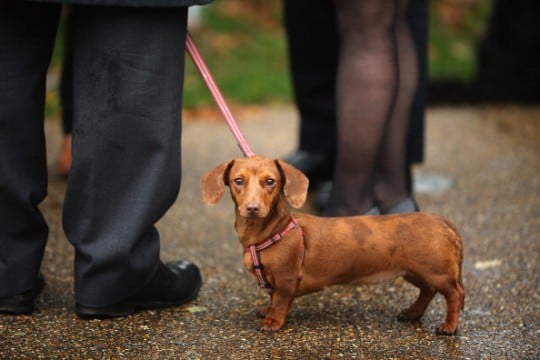
Dachshund
Cute little guys, right. But did you know that this is one of the main dog breeds that are most prone to obesity? We bet you didn’t. The reason for this is two fold. First of all, their little legs make extended exercise sessions more difficult. And two, thye are perfectly content sitting in your lap for 12 hours and eating snacks while you bing watch Orange is the New Black. Be careful, because you can unwittingly make your Dachshund much bigger if you don’t play with it enough.
(Photo by Dan Kitwood/Getty Images)

Rottweiler
Already a large breed, we think you will be surprised just how much of a merge there is on the list between smaller breeds and larger breeds. A Rottweiler can become obese really easy if you are not doing the right things. Already being large puts them at a natural disadvantage when it comes to weight gain. The problem is they need more food because of their size, but people don’t know when to say when to this breed.
(Photo by Andrew Burton/Getty Images)
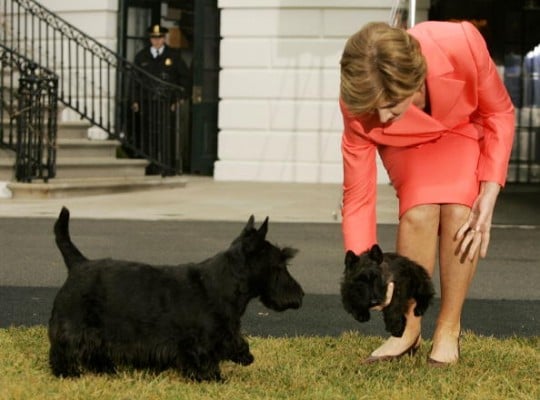
Scottish Terrier
Though a cute and proper little dog, this dog can gain weight very easily due to its size. Though they are typically active, you miss a day or two a week here and there, you might start seeing more weight on this breed. So remember, lots of exercise and not so many snacks under the table. What’s good about these dogs is that they like to play so encourage it. Get them out of the house and get them running!
(Photo by Win McNamee/Getty Images)

Labrador
Ah, we got the all American classic here. The Labrador. I mean, just look at that lead-in picture at the top of this article. That shows you just how serious it can get (and just how lightly people seem to take it). The problem here has a lot to do with the fact that this is a family dog that needs a good amount of exercise (an hour or two a day, every day). You forget that, and are unaware that the kids have been giving the dog twelve snacks a day and it hits you. You got an obese dog on your hands.
(Photo by Franck Prevel/Getty Images)

Bulldogs
Of course you knew that Bulldogs were one of the dog breeds that are most prone to obesity just by looking at them. But don’t get it mixed up. They are a stocky breed, but this does not mean they are all naturally obese. The problem with this breed is that they are openly lazy. That can be bad if the dog is also not eating right or eating too much between meals. They may not want it, but make sure your Bulldogs get the exercise they need.
(Photo By Craig Jones/Getty Images)

Basset Hound
Basset Hound can be obese hounds really easy. The reason for this is, they LOVE to eat. While we know most dogs love to eat, a Basset Hound would eat, non-stop, all day if it could. On top of that, this breed requires a great deal of exercise to prevent that from happening. So the commitment from the owner needs to be twofold. One, portion and snack control. Two, set aside the time to give this breed the exercise it needs, unless you want it walking with a belly that rubs on the ground.
(Photo by Brendon Thorne/Getty Images)

Beagle
We normally see Beagles as small dogs who are very athletic, and this is accurate. But unlike some of the other dogs, the Beagles can sometimes be a bit mischievous and greedy. This means you can find them eating almost anything if you don’t monitor it closely enough. While the dog is willing to be active and get exercise, it is also willing to steal a bag of chips off the couch and eat them all before you get out of the bathroom. Got to watch this breed like a hawk!
(Photo by Chris McGrath/Getty Images)

Cocker Spaniel
The Cocker Spaniel gets obese by manipulating many with its unignorable cuteness. That is actually the main problem with many of the dogs on this list. They give you those big, puppy dog eyes, you give them an extra snack, and next thing you know, your dog has diabetes and it is your fault. So beware when this dog comes a begging, because it tends to gain the weight a little easier than some other breeds.
(Photo by Andrew Burton/Getty Images)

Pug
Most Pugs are from Beg-onia. That is where constantly begging for treats like they are starving is accepted. Thing is, you need to be the wise person in the relationship. Much like the above mentioned breed, this breed begs with cuteness and quirkiness and ends up getting fat from it. The last thing you want on your hands is a dog that got sick or ill, but you could have prevented it. We know it is not always easy to say no to your dogs, but you need to learn to if you want them living long lives.
(Photo by Phillippe Diederich/Getty Images)

English Mastiff
A naturally massive and somewhat lazy breed if given the chance, the English Mastiff can pose a real problem if you are not closely monitoring how it eats and how much exercise the breed gets. The above picture sort of sums up how Mastiffs are, and you can see where that could lead to potential health problems down the road. Mastiffs are big enough, you don’t need one with an extra 20 pounds. In closing, what did we learn today? No dog gets obese on its own. Though some dogs are more prone to obesity than others, it still comes back on us at the end of the day. If your dog is obese and has diabetes, there is a good chance you are partly to blame. We need to step up as owners and give our dogs the long, healthy lives they deserve. Enough with the extra snacks, already.
(Photo by Michael Loccisano/Getty Images)

